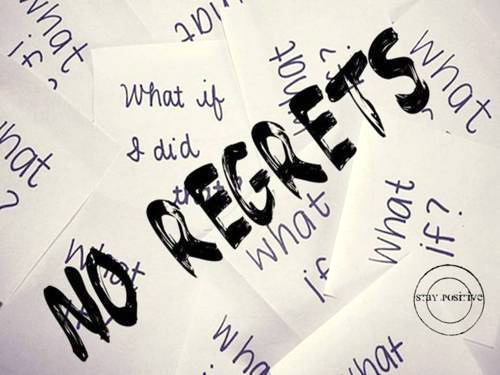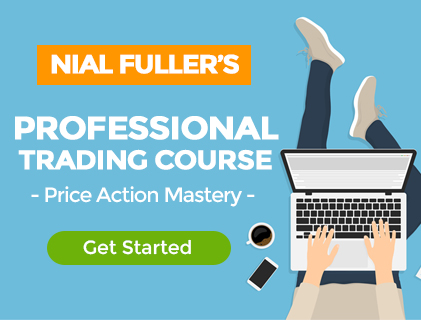Forex Trading Psychology 101
 You may have heard of the “3 M’s” of trading; Mind, Money and Method. In this lesson, we are going to discuss the first M, the mind. Trading psychology is a critically important topic for traders to learn about early in their trading journey, because if you don’t understand the role that your mind plays in trading, you will be stuck in a cycle of never-ending trading mistakes and account blow-outs.
You may have heard of the “3 M’s” of trading; Mind, Money and Method. In this lesson, we are going to discuss the first M, the mind. Trading psychology is a critically important topic for traders to learn about early in their trading journey, because if you don’t understand the role that your mind plays in trading, you will be stuck in a cycle of never-ending trading mistakes and account blow-outs.
Trading, perhaps more than any other profession in the world, is an extremely cerebral endeavor. Meaning, most of what you ‘do’ while you are trading, takes place within your own mind. If you do not properly control your mind, you stand absolutely no chance at making consistent money in the market, in fact you will almost certainly lose money if you don’t understand and control your mind.
From my experience of working with aspiring traders, it’s become obvious to me that whilst most traders are aware that psychology is an important factor in trading, very few of them focus on it enough. Trading psychology falls into the same boat as money management for many traders, that boat is the “I’ll do it later, after I start making some money in the market” boat. Unfortunately, this boat never comes for these traders, because it’s impossible to make money in the market if you don’t make a proper and conscious effort to master your trading mindset.
The emotions of trading
To understand and then eventually conquer your trading psychology, you need to have a thorough understanding of the major emotions that you’ll undoubtedly experience as you trade the market.
Note: these emotions mainly apply to trading a live account, demo trading does not bring out the same emotional and psychological reactions in people because there’s no real money involved.
Greed – The old Wall Street saying “Bulls make money, Bears make money but Pigs get slaughtered”, has truly stood the test of time. Greed is pretty self-explanatory, but there are some key points about it that you need to be aware of as you trade the market.
The most obvious and important aspect of greed you need to understand, is that it if you don’t control it, it will cause you to try too hard to make money in the market, which will actually cause you to lose money. Trading is obviously about ‘making money’, so it naturally invites greed into your mind, with an open door. I could literally write about greed all day, but the main thing you need to understand is that the only way you can really combat it effectively, is by understanding that the only way to make consistent money in the market, is by having patience.
If you have a small trading account, greed will not help you build it faster. What will help you, is being patient and consistent, which requires discipline. The last thing you want to do is try and over-trade or over-leverage your small account in hopes of ‘getting lucky’, because even if you do get lucky and build it up a bit, you’ve just reinforced greedy behavior, which will eventually result in you losing all your profits and blowing out your account. In short, there is no short-cut to trading success, it only comes through the power of consistency.
 Euphoria – Euphoria is perhaps the most insidious of all emotions that affect a trader. You don’t normally associate euphoric feelings with ‘bad things’, but in trading, euphoria often leads to a lot of lost money. Typically, after a nice winning trade or a series of winning trades, a trader will feel good, even euphoric sometimes. Whilst feeling euphoric is not necessarily ‘bad thing’, if not properly recognized and controlled, it can lead a trader down a very, very slippery slope of trading mistakes.
Euphoria – Euphoria is perhaps the most insidious of all emotions that affect a trader. You don’t normally associate euphoric feelings with ‘bad things’, but in trading, euphoria often leads to a lot of lost money. Typically, after a nice winning trade or a series of winning trades, a trader will feel good, even euphoric sometimes. Whilst feeling euphoric is not necessarily ‘bad thing’, if not properly recognized and controlled, it can lead a trader down a very, very slippery slope of trading mistakes.
As I discuss more in-depth in my article on low vs. high frequency trading, euphoria tends to negatively affect a trader by giving them too much confidence, false-confidence or over-confidence, whatever you want to call it. It seems to be part of our inherent human wiring to assume that WE were the main reason we had a winning trade, and when you have a string of winning trades, this assumption becomes even more ingrained in our mindset. Eventually, what typically happens, is that a trader begins perceiving less risk in the market than there really is, and this causes them to start taking trades that don’t meet their trading strategy criteria, also known as over-trading. This over-confidence can also cause a trader to risk more than they are comfortable with losing on a trade, and when you combine a trader who is trading too much and risking too much, you have a recipe for an account blow-out.
Fear / Doubt – Fear has its place in a trader’s psychological ‘arsenal’, if you will. However, fear can also cause a lot of problems for a trader. First off, it’s good to have some amount of fear as you trade; you want to perceive the real risk involved with any trade you take or are consider taking. You want to always be aware that you could lose on any trade you take, because your trading edge / strategy has a random distribution of winners and losers. This basically just means that, any one trade has essentially a ‘random’ outcome, even though your trading edge will have a certain overall winning percentage, that winning percentage needs to see a series of trades to play out. Thus, you should always understand that any trade you take can potentially be a loser, having this fear and understanding of risk will help you offset and control the greed and euphoria that we discussed previously.
However, fear is not all good for a trader. In fact, beyond having a realistic ‘fear’ of the risk involved in trading, fear is bad for a trader. You don’t want to be afraid to enter a perfectly good price action trading strategy, in other words, you don’t want to have too much fear. Traders typically become afraid of trading when they are risking too much money per trade (being greedy), so controlling your risk per trade properly will go a long way in helping you avoid having too much fear of trading. You should be starting to see how a lot of these emotions are connected; euphoria and quickly lead to greed and greed can quickly lead to fear. Essentially, trading is a game of consciously controlling yourself and not letting your emotions and feelings control your actions in the market.
Hope – Hope is another one of those typically positive emotions / feelings, like euphoria, that are generally negative in the realm of trading. It’s normal and almost unavoidable to feel some amount of hope as you enter a new trade; you want the trade to work in your favor, obviously. However, it’s important to understand that the market doesn’t care about you or your ‘hope’, and it’s going to do what it wants, regardless of what you want it to or what you hope it does.
Therefore, as a trader, it will behoove you to keep your hope in check. You need to understand that each trade truly does have a random outcome, because anything can happen in the market. Again, as I discussed above, this doesn’t mean that ‘trading is random’, it just means that any one trade, taken in isolation, has basically a random outcome, even though your trading strategy / edge as a whole may for example have a 55% win rate over a large sample size / series of trades. The point is this: don’t get your hopes up for any one trade, instead, you can be hopeful that IF you follow your trading strategy consistently, over time, the edge will pay off and your overall winning percentage will be realized.
 Regret – Regret is something any trader who is traded real money in the market is all too familiar with. A missed trade that would have been a nice winner, exiting a trade just before it surges in your direction, suffering a losing trade that was not part of your trading strategy…these are all things that lead a trader to feel regret. However, regret literally servers no useful purpose to a trader, in fact, it will ONLY result in other more dangerous emotions, if you allow it to.
Regret – Regret is something any trader who is traded real money in the market is all too familiar with. A missed trade that would have been a nice winner, exiting a trade just before it surges in your direction, suffering a losing trade that was not part of your trading strategy…these are all things that lead a trader to feel regret. However, regret literally servers no useful purpose to a trader, in fact, it will ONLY result in other more dangerous emotions, if you allow it to.
Regret causes traders to jump back into the market (typically without their edge being present) after a losing trade or after missing out on a good trade setup. I know traders who have literally regretted their way to blowing out their trading account. They did this by constantly feeling regretful after a trade, winner or loser. They regretted not getting every pip out of a move, so they would jump right back into the market to try and make more money, which inevitably resulted in a loss. They regretted losing trades and would jump right back into the market after a loser, to try and make back the money they had just lost.
I will once again frame why regret is a waste of time with the fact that each trade has a random outcome. If you truly understand and believe that each trade’s outcome is independent of the previous trade’s outcome, then you will see why regret is a waste of your time and energy. You NEED to dig up some discipline and to some degree trade with ‘ice in your veins’, because if you go regretting every trade, you’ll be on a quick route to trading account destruction.
Anger / Frustration – Anger and frustration are closely related and are sometimes difficult to distinguish from each other. The biggest problem that results from anger and frustration is causing traders to feel like they want to take revenge on the market. Getting stopped out of a trade by 1 pip, only to then see the trade rocket on your favor, can be a very frustrating event and it can even make you angry, causing you to enter a ‘revenge trade’, which basically just means you jump back into the market because you’re mad you lost money or perhaps didn’t make as much as you thought.
The psychology of a successful trader
 Psychologists have made profiles of many professional groups such as the police, pilots and firemen. It is becoming more and more frequent that businesses of all sorts are beginning to request job applicants to undergo psychometric tests to see if they are suitable for the job. In these tests, certain personality qualities are seen as more desirable than others for particular lines of work.
Psychologists have made profiles of many professional groups such as the police, pilots and firemen. It is becoming more and more frequent that businesses of all sorts are beginning to request job applicants to undergo psychometric tests to see if they are suitable for the job. In these tests, certain personality qualities are seen as more desirable than others for particular lines of work.
Even more recently, psychologists, often traders themselves, have turned to looking at what attributes make the successful trader. The University of Minnesota has carried out one such study. They found:
1. Open-mindedness – Successful traders are open to new ideas. They do not close their minds off to other possibilities if these can be shown to be beneficial. They will have a successful system of their own which works for them but they are quite willing to try out other ideas that seem promising.
2 Conscientiousness – Trading requires a lot of hard work and successful traders take their job very seriously and are prepared to go that extra mile. They will not trade unless well-prepared. They also follow their trading rules without fail, not taking a trade unless all criteria are met.
Conscientious traders keep to a regular schedule and rarely diverge in trading or life. They are also meticulous in their adherence to their trading journal.
3. Personality types can be separated into introverts and extroverts – Trading is a solitary activity. One would therefore expect that introverts would do best. However, many traders like to link up with other traders within forums or otherwise and form networks for the exchange of ideas and information. This would classify them as extroverts, as they usually are in the normal daily lives. But even introverts these days are employing coaches and mentors as they realize that isolation leads to a narrow perspective and tunnel vision.
4. Helpfulness – Successful traders are willing to share their knowledge and skills with others to help them improve. They seem to sense that the odds are against them and that survivors should support one another. Many successful traders become forex trading coaches to not only benefit themselves in their learning curve but to help others attain success. They realise that not everyone can become a successful trader but they know that for some they can make a real difference.
5. Neurotics – May succeed in other professions but are not likely to succeed at trading.
A positive and win-oriented outlook is a key quality in any field and particularly in trading. This does not however mean that people who do not possess the attributes listed cannot become successful forex traders. Motivation and passion will help develop techniques to overcome any not so ideal qualities. And personality characteristics are not set in stone. In addition, overcoming such obstacles shows determination and that is a quality that makes a winner.
Analysis of oneself and identifying strong and weak points will bring fruition. Personality is important and plays a major role, for instance how self-disciplined and in control of your emotions you are. If these are lacking, then they have to be developed to become successful.
Conclusion
I trust today’s lesson has provided you with some solid information and insight into the world of trading psychology. It’s critically important that you do not underestimate the important role that your mindset plays in your overall trading performance. You NEED to make a conscious and concerted effort to control your behavior in the market, because if you don’t, you will almost certainly be controlled by your emotions and you’ll be at their mercy.
Click the following the link to see some excellent price action video tutorials.






Love This Article… Really Really Informative. As An Aspiring Trader… I Need To Seriously Work On My Mindset. As I Have Seen And Heard From Many Other Traders Is That Your Mental Strength Must Be Strong And Powerful… Otherwise You Will Be Sucked Into The Negative Aspects That Do Come With Trading The Market
Thank You Nial… Appreciate It Very Very Much.
I think this article need to be co-joined in you free article of Forex training .The markets are won by stable minds only mind 100% will make you win in the markets even though it is not as easy as stated here.Thank you Fuller for your article.
so true